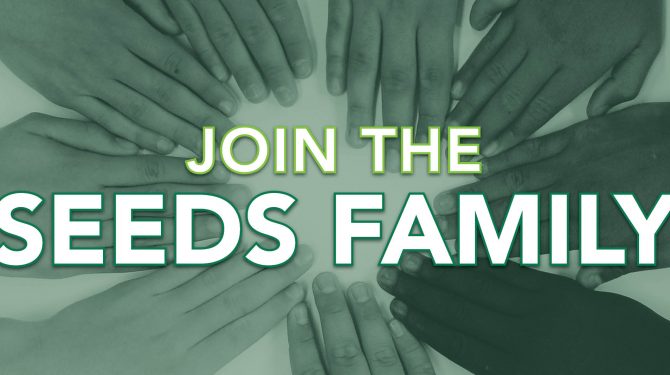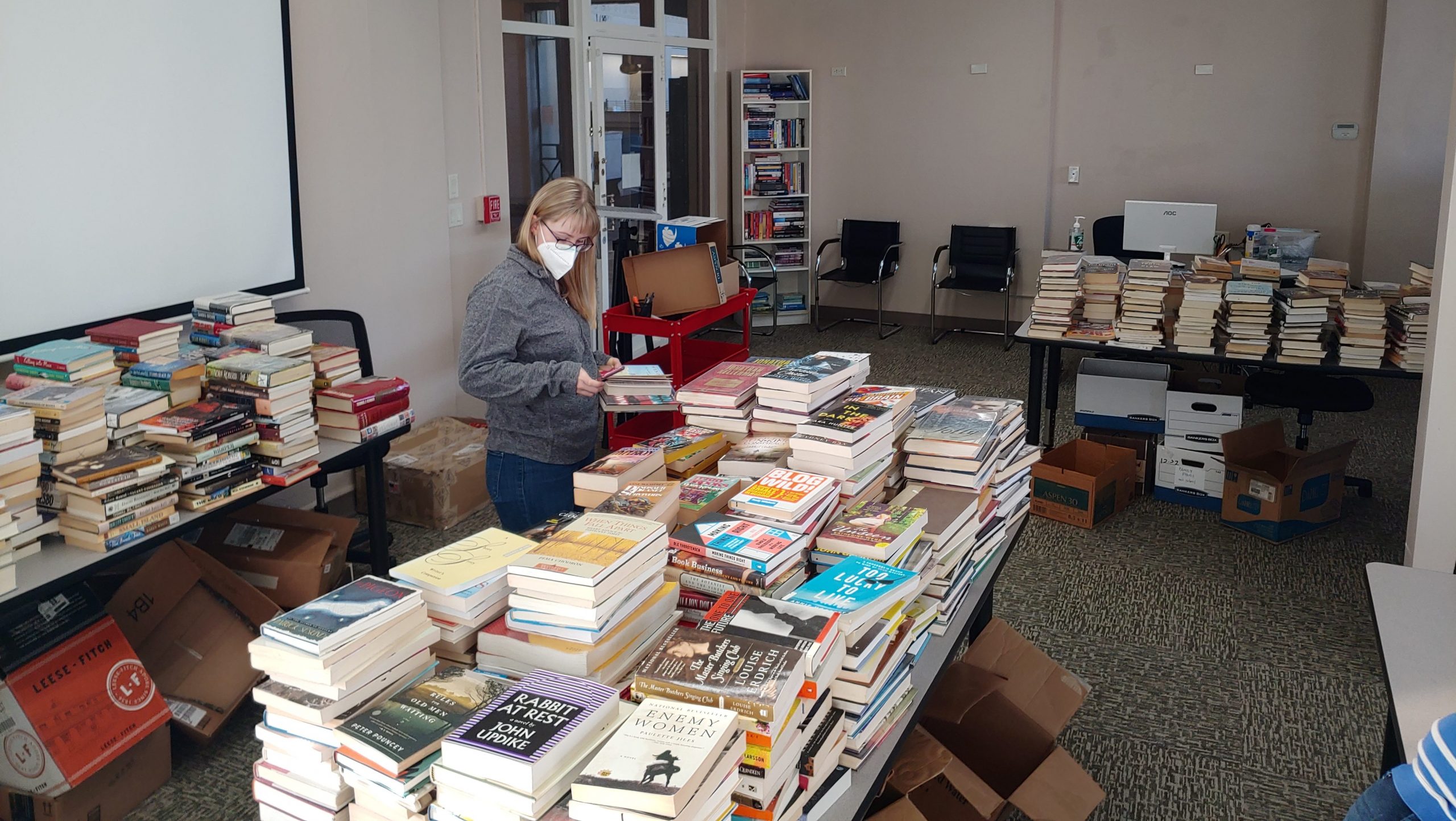What Makes An Employee Successful at Seeds?

(Updated 3/13/23)
Seeds of Literacy is growing! We remained operational during the global pandemic that shuttered the doors of other adult literacy programs by going Virtual. As we look to reopen our physical classrooms (and possibly expand to new locations?!), we’re adding to our team!
“This is an exciting time of growth,” Bonnie Entler, President & CEO of Seeds said. “Things were very different for us a year ago. Staying close and connected during the pandemic taught us a lot and it highlighted areas of opportunity for improvement. The Virtual Classroom is a permanent fixture for us now, and that means we need more staff.”
We asked her to speak with us about employment opportunities within the organization.
Q1: Each position requires task-oriented skill sets, but what are some of the personality traits and qualities that make candidates and new employees successful?
BONNIE: That’s easy.
Curiosity. An enjoyment of Problem-Solving & Trouble-shooting.
The people that have been most successful working at Seeds are really self-starters who require very little supervision. They keep themselves busy by actively looking for what needs to be done. We’re a small team, so after onboarding, we need people who are ready and willing to jump in and find answers themselves.
I have staff members who treat every challenge as an opportunity to develop new processes to make things more efficient for themselves and for everyone else. They are curious, asking why we do things this way… and if this way’s not working anymore, they are eager to present new solutions. They’ll even teach themselves new skills, often on their own time. They anticipate and prepare for problems before the problem arises. The ability to do that comes from really understanding all facets of our program, beyond their particular role.
Patience and compassion.
We work with a vulnerable population. Truly caring about the success of our students has to be our number one priority. Even our support staff, those who don’t work directly with students, become emotionally invested in the success and failures of every adult learner. Staff members understand the challenges and barriers faced by our students, and go above and beyond to be the bright spot in someone’s day. Because of this, the students trust us.
Passion for literacy.
This one’s a given. No one gets into nonprofit work to get rich financially. It’s a calling. And everyone’s personal calling is different. Those on my team have a passion for literacy and adult education, and instilling a love of learning in others is their calling.
Q2. What are some of the “perks” of working at Seeds?
B: Full-time employees pay only a small fraction of their premiums for medical insurance. I feel it’s important to keep the team healthy, and that means keeping their healthcare affordable.
Our time-off isn’t lumped together. Going to the doctor or having the flu — those aren’t vacations. Vacations are for having fun, decompressing, relaxing, and refocusing — Employees receive BOTH vacation AND sick time. Additionally, Seeds averages about 16 holidays a year and like most education providers, that typically includes the week between Christmas and New Years. That’s far more than most corporate places!
Non-program staff positions have a bit of flexibility. Because those roles don’t revolve around set class times, there is a little bit of wiggle room on a one-off basis.
But there are all kinds of incalculable perks, too.
For example, the people:
Everyone on staff has a genuine camaraderie, socializing outside of work, helping each other. The tutors are incredibly caring and dedicated, and as volunteers, they are here because they WANT to be here. Similarly, the students CHOOSE to be at Seeds. No one is forcing them. They’ve made the brave choice to be here, regardless of the obstacles that stand in their way. Their stories are inspirational. You can go to sleep every night knowing that you made a difference in someone’s life and that’s a powerful, humbling feeling.
The food.
My staff always teases me that I like to feed people. Before the pandemic, I brought in goodies for everyone, both as a reward and sometimes just because. Tutors and students sometimes bring in treats to share as well. Bagels and donuts for breakfast. Cakes for birthdays, pies on March 14 (for Pi Day), and potlucks at the holidays.
The books.
Almost every staffer is an avid reader and we’re lucky to have some loyal bookstore donors who give us brand new titles and advanced reader copies. We have several library branches that donate as well. The books are available for everyone in our free lending library, but staff always get first pick.
Q3. What candidates would NOT be a good fit?
B. This one’s a little harder to answer. We are a small nonprofit, so we don’t have a ton of formal training. You have to come to us really knowing your stuff.
Program positions require an education background and a knowledge of how adults learn differently. Program staff members have to have compassion and patience. Someone who wasn’t respectful of our students or who couldn’t appreciate a student’s obstacles wouldn’t last long.
Non-program positions need someone who is truly an expert in their area, whether that’s fundraising, outreach initiatives, marketing, etc. I didn’t teach my communications director to pitch to reporters or run social media ads, she came in with the skills to do that.
With the rare exception, most of the positions at Seeds require the employee to be ON-SITE (because that’s where our students are when we reopen). Program staff hours aren’t really flexible because we have set class times and orientations so someone who needed a varied schedule wouldn’t work out.
People who aren’t willing to jump in where needed…who stay firmly entrenched in their specific area (“That’s not part of my job”), won’t last. We just don’t have the resources to operate that way. We all WANT to help one another because your success is our success. Your failure is my failure. It really is about teamwork and being willing to wear more than one hat.
Although members of my team are always looking for new, improved processes, they also have a deep respect for the history of the organization. Someone new coming in wanting to change everything without first understanding the history (and asking “Why”) probably wouldn’t be well-received. We’re very collaborative here.
Q4. What does the interview process look like?
B. Depending on the role, I typically call candidates for an initial interview, either in person or via Zoom and then set up second interviews with additional members of the team. It can take a month or more because of my other responsibilities and trying to coordinate the availability of other staff members, while working around class times. It takes us longer because we are such a small organization. No matter how much we need the help, it’s hard to pull staff to assist with interviews when they are needed by the students.
Q5. So how does someone apply?
B. All of our open positions are listed on our website’s Employment page. Most of them include very specific application instructions, so please pay close attention to those. In some cases, the free listing might be expired on the application website, but if the position is still listed on OUR website, then it is still an open role. Candidates can email their resume, cover letter, and any additional materials to communications@seedsofliteracy.org.
# # #




